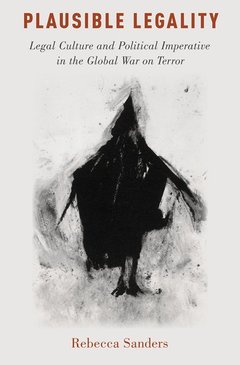Description
Plausible Legality
Legal Culture and Political Imperative in the Global War on Terror
Oxford Studies in Culture and Politics Series
Author: Sanders Rebecca
Language: English
Subjects for Plausible Legality:
Publication date: 09-2018
248 p. · 23.6x16 cm · Hardback
248 p. · 23.6x16 cm · Hardback
Description
/li>Biography
/li>
In many ways, the United States' post-9/11 engagement with legal rules is puzzling. Officials in both the Bush and Obama administrations authorized numerous contentious counterterrorism policies that sparked global outrage, yet they have repeatedly insisted that their actions were lawful and legitimate. In Plausible Legality, Rebecca Sanders examines how the US government interpreted, reinterpreted, and manipulated legal norms and what these justificatory practices imply about the capacity of law to constrain state violence. Through case studies on the use of torture, detention, targeted killing, and surveillance, Sanders provides a detailed analysis of how policymakers use law to achieve their political objectives and situates these patterns within a broader theoretical understanding of how law operates in contemporary politics. She argues that legal culture--defined as collectively shared understandings of legal legitimacy and appropriate forms of legal practice in particular contexts--plays a significant role in shaping state practice. In the global war on terror, a national security culture of legal rationalization encouraged authorities to seek legal cover-to construct the plausible legality of human rights violations-in order to ensure impunity for wrongdoing. Looking forward, law remains vulnerable to evasion and revision. As Sanders shows, despite the efforts of human rights advocates to encourage deeper compliance, the normalization of post-9/11 policy has created space for future administrations to further erode legal norms.
Rebecca Sanders is an Assistant Professor of Political Science at the University of Cincinnati, where she teaches and researches at the intersection of international law, international security, and international human rights.
© 2024 LAVOISIER S.A.S.




